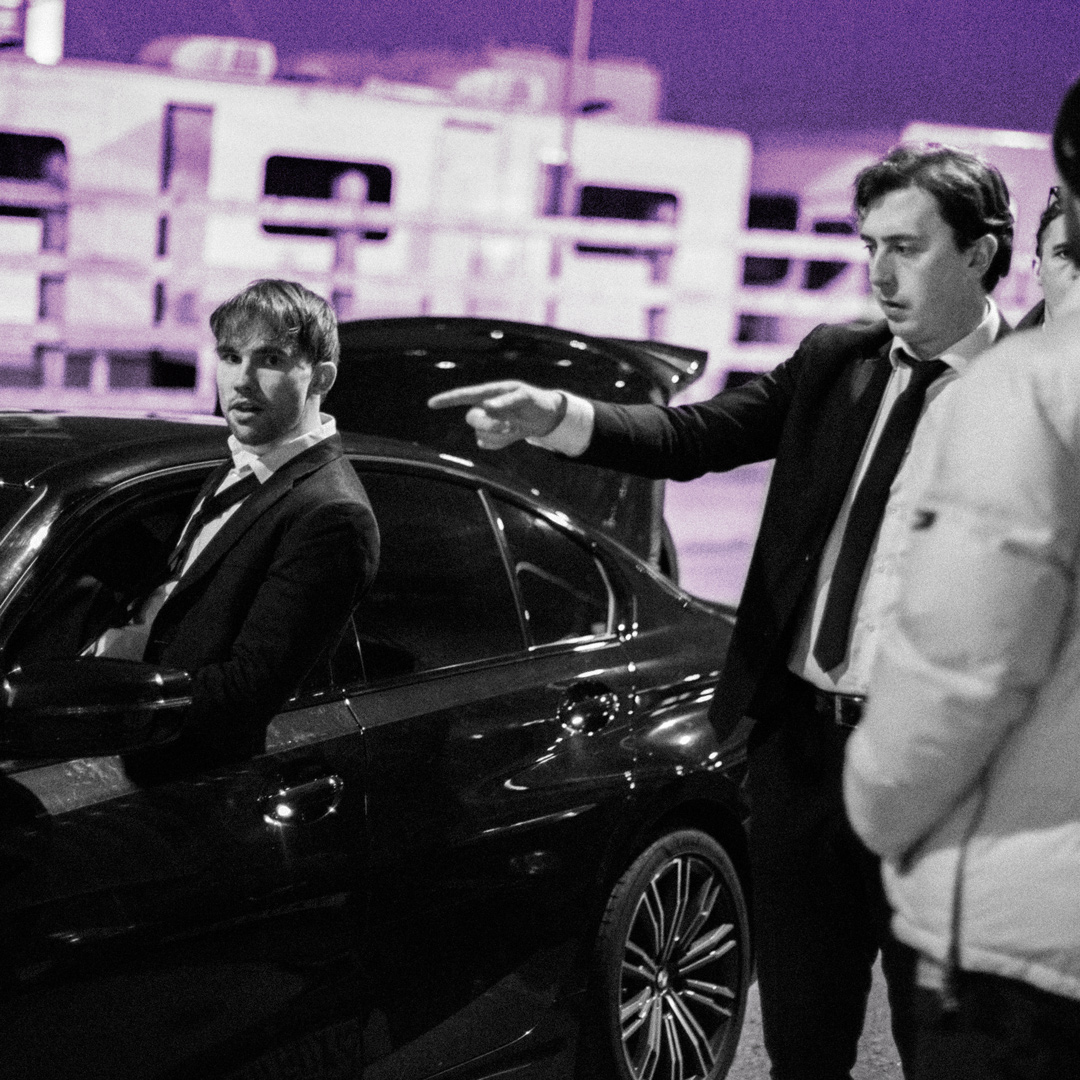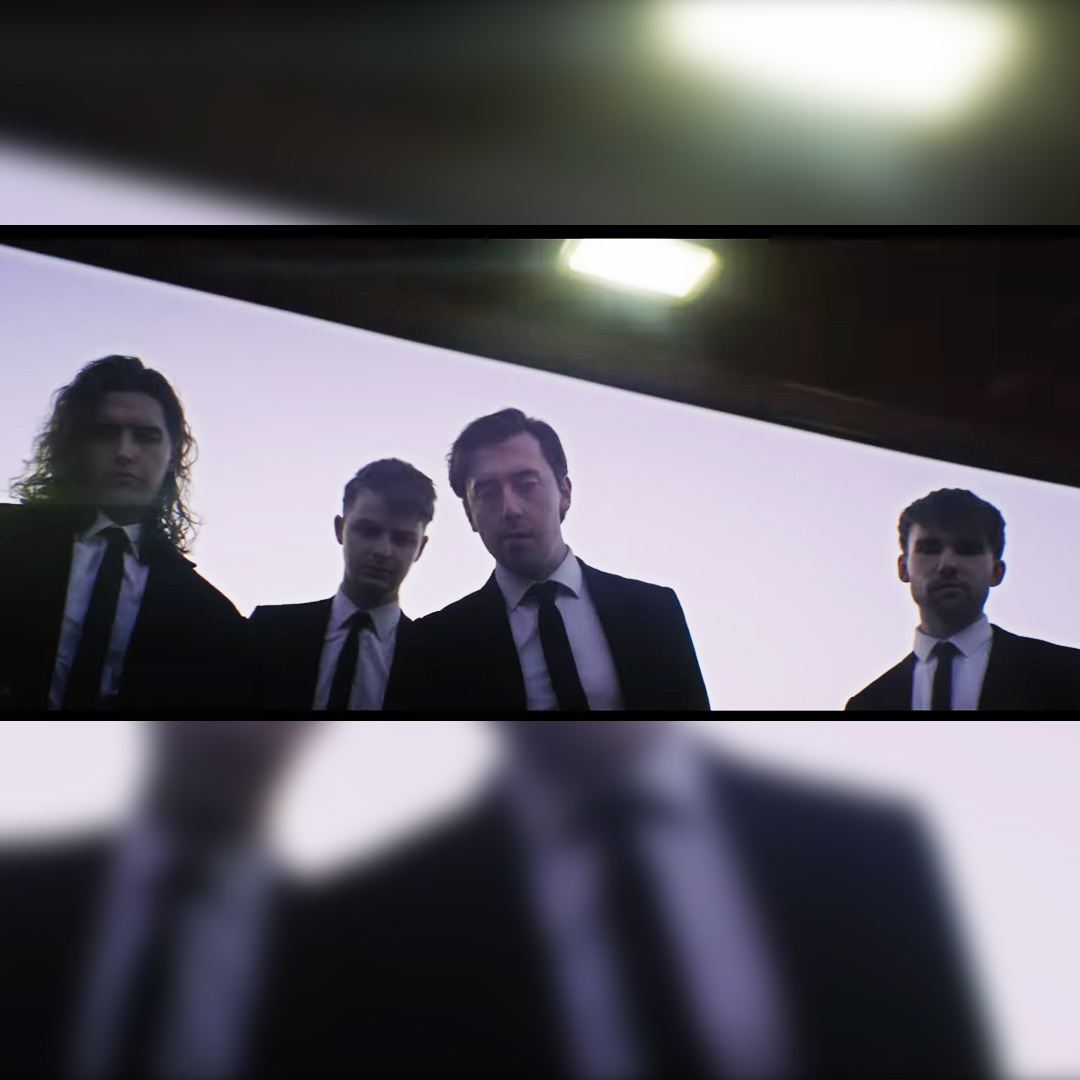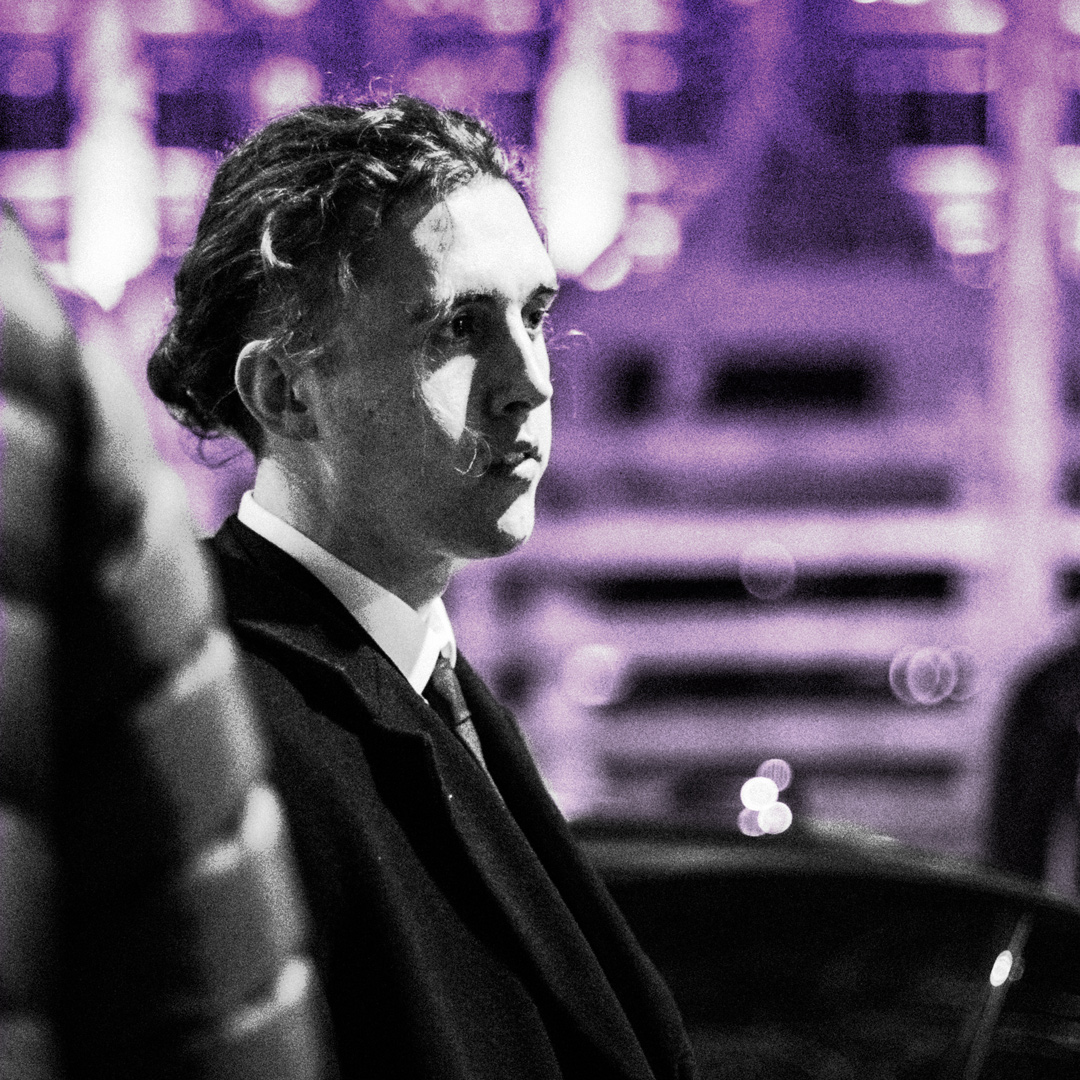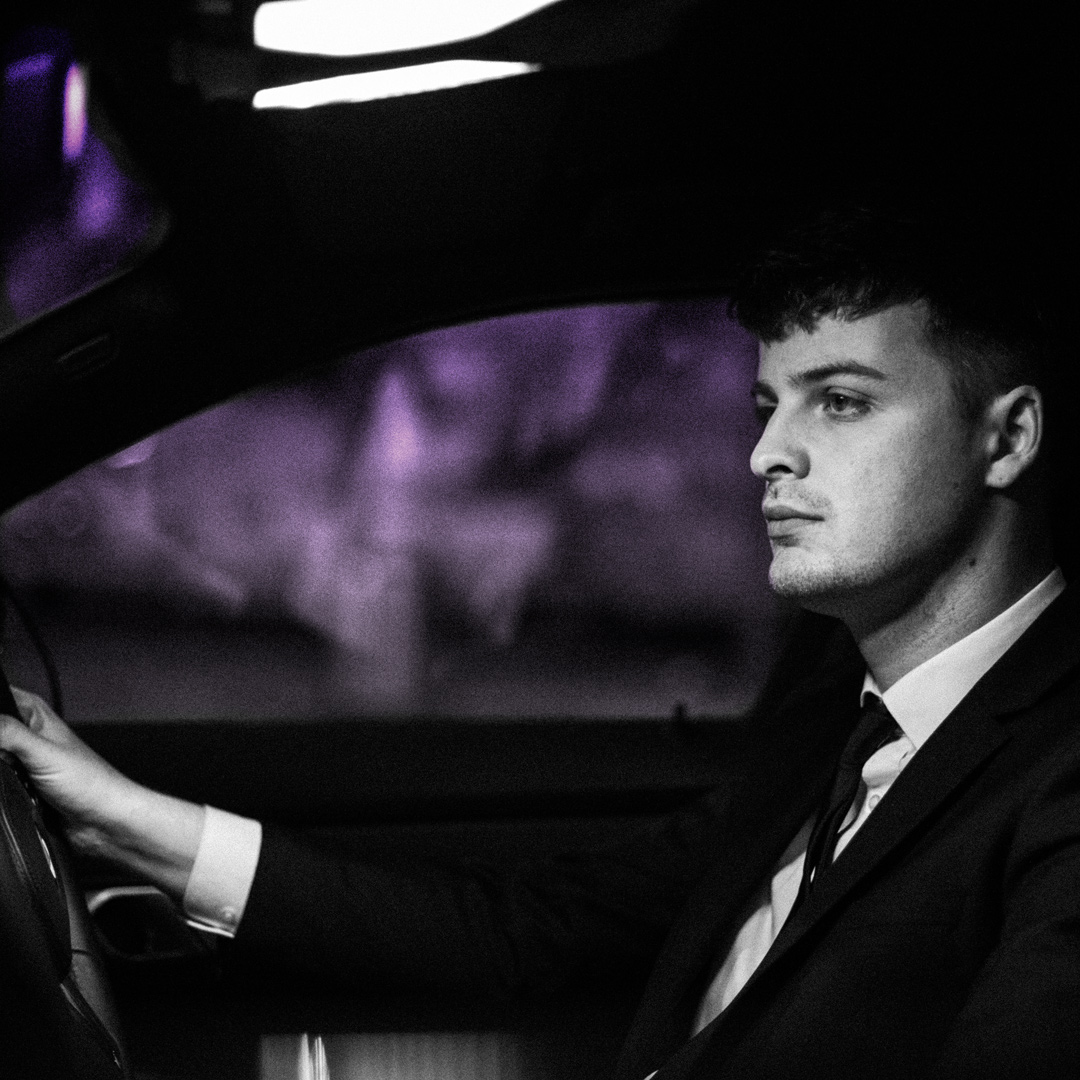The Clockworks talked to us from their home in Golders green, bunched up on the sofa together, just waiting to get out and play live again. It’s got to be tough for new bands these days. Though it gives everyone a chance for an influx of new records, new releases, and videos with socially distanced views of the streets outside. I can’t tell you how much of a fangirl I am for the Clockworks. Their music is great, sure, varied in its writing, strong lyrics, but they’re also just four really nice lads.
They’re also really good at what they do. They’ve made sure of it. Honestly, think we might be hearing a lot more about this band in the coming years. They’ve already been played at least three (or is it four?) times on Radio 1.
They’re very good at giving you a snapshot of people’s real lives. And it sounds like they’re very into ‘the truth’ in their music, which is probably why people like them so much. Their empathy for real people is so powerful. For example, in ‘Bills and Pills’, they mention a drug dealer who’d “sell water to a drowning man”. Their talent for pointing out what’s wrong in the world without actually pointing fingers is incredible.
If you’re a child of the 20s, and you like ‘Chelsea Dagger’ or are just into cool bands then you’re probably onto a winner here. This is a proper working class band. They’re the underdogs from Galloway who broke out to London and we’re behind them all the way …

photo: Oscar J Ryan
How did you guys all meet each other?
James: So Damian, me, Sean went to school together. I was actually the year ahead of the two boys, but we became friends and sort of bonded over music […] and we’d play music for ages. We all moved to Galway City out of the small town that we were from, and we met Tom there, and he was in Galway City.
James: I was in university then, and Tom was in the university there as well. Galway’s kind of a university town, like Bristol maybe […] Tom was there, so we met him in the university on the music scene.
So really this is like the story of the hometown guys who break out of Ireland to roll the dice in Camden?
James: That’s it. Chapter one.
How did you feel coming to England?
James: I think we were gunning to get there. We were chomping at the bit to get over here. Yeah, we had been in Galway for ages, and we’d come over here a few times to play in Camden: a couple of times in New Cross, a few venues around Kilburn, The Good Ship in Kilburn which is gone now. We popped over a few times, and we sort of knew this was where we had to be, but we wanted to be ready.
So how did that work?
James: We made a plan. In the city of Galway, it’s a very small city, and there’s only a couple of venues, and one of them, in particular, we played a lot called the Róisín Dubh. It’s split into two floors. The top floor is a small room of about a 90-cap venue, and there’s a bottom floor which is about 300. What we said was, we’re going to put on a gig at the upstairs – I think, it was like May of that year, May or June – and then put on a gig downstairs in like October, November of that year, and we’re going to sell them both out. And then, once we’ve sold them out, we know we got two stamps in Ireland, and we can move on.

Clockworks. Source: youtube
But that’s not easy. What made you guys successful in doing that?
Tom: I think because we decided it was what we had to do to get out.
James: And walk around. To physically sell out involved a lot of walking. I remember going to different cafes and asking them just to stick our song on the playlist.
It was like hand-to-hand combat in Galway!
Damian: It was literally hand-to-hand because we printed these tiny flyers that was just like cheap paper and stood at the gates at the college, when we knew they were all leaving, and just handed them out. We kind of did anything we could to get our name out there and to get heard.
So what is your aim? Fame and success?!
James: It’s more about the music, I think.
Tom: We just like to do our best, and I think to do that requires us to not have any obstacles, I guess. I was going to say –willpower drains. I think we do so well because we give our whole selves too.
Damian: Yeah, we’re always focused on the next task, whether that’s releasing a single or getting our music video done or getting an artwork done. That’s always the foremost thing on our mind. It’s never like ‘oh, I wonder what everybody will think about it’. Really, it’s more ‘okay, we need to get a single recorded, and we need to get it recorded to the best of our liking and to the best of our ability, the one that we’re proudest to put out as opposed to the one that we think people will like the most’. And that’s goes for anything, whether it’s videos or music or anything.
James: I guess that’s all we can control, isn’t it, whereas I think we definitely want to make a connection through music with as many people as we can. We sort of say it every time, but we always dreamed of headlining Glastonbury someday. But sort of on a day-to-day level, it’s that; it’s practical. It’s, what’s the next thing to get to a stage where really, as Tom said, we can sort of just commit ourselves because I think it’s the commitment. That’s making it, isn’t it, really? It’s just being committed to something that you love.
Tom: And I think we know we can do it. I think we believe in ourselves, and each of us believes in the other three.
Have you played a lot in Camden?
James: We played Dublin Castle. We played quite a bit Camden actually.
Damian: The Monarch.
Tom: The Monarch. It’s gone now, isn’t it?
It’s gone, yes. Sadly, it’s gone.
James: Yeah, we had a few good ones in there … The Black Heart.
So what’s been the big break? Is it signing with the label?
Tom: It was definitely the start of the second half of our careers.
Damian: I mean, it happened so quickly after we moved to London, that it’s kind of easy to forget that that doesn’t usually happen. We think of moving to London as like a great thing for us, but obviously, it was signing with Creation, which was a whole different thing.
So you guys had some radio play. I’m interested in your reaction to that. Did you have a party?
Damian: We definitely celebrate. But Annie Mac, she’s been very good to us. She’s played our last three singles because Sean, the other one that’s not here, he went to Radio 1, the premises, with a CV in his hand, stopped her going in. It could have gone either way really. She was nice about it, and she thought it was cool, and she listened to the track and got back to us and said she loved it and that she was going to play it. That was for ‘The Future is Not What It Was’, wasn’t it?
Tom: Yeah, it was back in April.
Damian: She played that, and she’s played every single we’ve released since. I mean, we’re very grateful to her and to her team for how supportive they’ve been of us, and she always says a little bit. She remembers who we are, and that’s nice, I think. She’s Irish too, so she likes flying the flag a bit, I think. But it’s kind of crazy to us. Again, when you’re in it, it’s easy to kind of forget and to stop and take a second, but when you take that second and think ‘we’re being played on BBC Radio 1’, that is quite crazy.

photo: Oscar J Ryan
Do you think through your song material or does it just come out in your writing?
James: I’m not sure, but I think it doesn’t matter what you want to write about because I think what comes out is just kind of what has to come out as opposed to what you necessarily want to. I think when things are going well, that’s what happens, and when they’re not, you’re forcing a certain narrative.
Damian: Yeah, you don’t sit there and write like a heading of politicians. That’s not how we would do it.
James: Exactly, and I think at its most organic, it’s sort of– we have a song called ‘Can I Speak to a Manager?’, and that started off with the first couple of lines of the song. And in my head, that was going to be all about this sort of little story that the first verse sort of talks about, and then, suddenly, it’s going over here, and it’s getting all cynical. It just happened. It sort of just happens, but I think it can be better that way. I think it’s more organic or something, and I think it means what is really important comes out.
Who do you listen to for inspiration?
Damian: I really love Arlo Parks’ album that came out recently. That’s probably the most recent thing I listened to that I was really liking.
James: Phoebe Bridgers.
Camden Live: Everyone loves her.
James: She’s so good. There’s loads.
Damian: I really like Working Men’s Club, yeah. Mura Masa. I don’t know if he’s released in a couple of months, but he worked with Slowthai for a couple of songs, and he’s like a producer, and his album’s really good. I think it’s not really that conscious of a decision, but we do try to listen to stuff that is as least like us as possible, as least like our music. We intersect our bands like The Strokes and The Streets and The Smiths. These are bands that we all love, so I think no matter what else we listen to, we’ll always kind of come back to, I guess, the guitar band. But to listen to stuff that is as different to us as possible, you’re just coming at it from a completely different angle, and it’s good that the four us come from four different angles to end up with one of our songs because [crosstalk]. That’s what we try to do.
Tom: To address your question, more than any specific artist or band, I think, that is quite inspiring to us, is Irish people.
Yeah, there are loads of talented Irish people!
Damian: Some of the most talented musicians I’ve ever seen in my life were at my cousin’s wedding. I was like, ‘who are you?’
James: There’s this weird almost irony, though, that very few people that we knew, personally, at least, in Galway, just in the world that we knew of Ireland, did– we knew so many incredible musicians but very few who had the same ambitions as we did, to push, push, plug, plug, hustle, hustle, work tirelessly to try and get this thing going as far as possible. But they were content to be virtuoso guitar players, fiddle players, singers sitting in the back of a smoky bar playing.
So why do you think you guys are different?
Damian: It’s funny because there was no point that we allowed ourselves to be comfortable because first, we started off in Loughrea, the three of us, and we started playing gigs before I could play drums. I was playing one of those boxes you see the buskers play. We were very new to writing our own music and stuff, but we were constantly keeping ourselves out of our comfort zone.
Tom: The reason that we’re here is because we all knew it’s what we have to do.
James: Here, we would do the same – it’s a little bit different in COVID – going to Annie Mac physically. We’ve been to BBC 1, BBC 6, all the record labels, Radio X. Been to Radio X at half-five in the morning to just try to make things happen.
Tom: If we knew exactly what had to click, it’d be easier. You have to try these things and be in a position where your reach exceeds your grasp but still be reaching. I know we take rejection. Life is full of rejections. You’ve just got to keep–
Damian: From early on, we had watched Glastonbury and said something like ‘that’s where we want to end up’. As far-fetched as that may seem to a lot of people, because it’s like it’s literally the highest stage, as Tom was saying, if you have that goal, then you just work towards that. You take all the steps along the way. We obviously don’t think that tomorrow we’re going to be headlining Glastonbury, but we’re just kind of working towards that kind of level, just always working to be doing something and try to go up as we’re doing it. Eventually, if you just keep going up and up and up, you’ll eventually get where you want to be, but it gives us focus, I guess, some sort of focus.
So practically, where you guys are now, what is on the cards now for the next six months?
Damian: It’s been the hardest time to plan, these days, because the only thing we can plan are releases really. Obviously, we’ve just released a song, so we won’t be releasing for another couple of months anyway, but we’ve shot a kind of live session. So we’ll be relea sing that in the next month. Our music video for our single that we released is coming out tomorrow. It’s being premiered on Clash Magazine. Then gigs, who knows? We’re trying to get gigs as soon as we can.

photo: Oscar J Ryan
Have you ever had any really crazy gigs?
Damian: In December 2019, we went back to Galway, and we had the song that one of the lines is ‘there’s no time for Weetabix’, and what we didn’t know is that a bunch of people had smuggled in cartons of Weetabix, and they were dishing them out to each other as the line was about to come on. And as soon as James sang it, we all just got pegged with Weetabix. And then, after that, people were smuggling them down their pants and everything. It was a whole operation, pre-planned. I just got Weetabix in the face and saw it on the ground. I was so confused. That was a bit weird. That was a strange one. I guess, it showed people were listening to the lyrics which is good.
So what are you guys worried about?
Damian: Nothing!
James: We make sure we work really hard. We surround ourselves with great people who have our best interests.
Damian: We have a great manager, we have a great booking agent, and we still have all of us as well. None of us have faltered. That’s kind of comforting too.
Well, thanks so much guys, and I’ll see you at your next gig … I’ll be sure to bring a bag of Weetabix with me!
